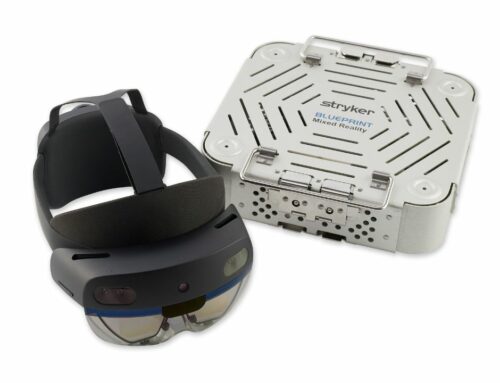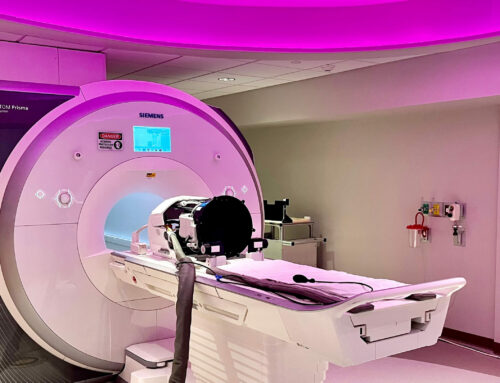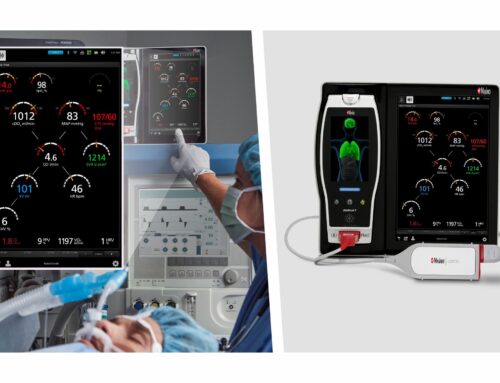Newly validated i31-GEP algorithm integrates DecisionDx-Melanoma continuous score with clinicopathologic factors designed to provide a more precise, personalized likelihood of sentinel lymph node positivity
Updated patient report also includes expanded dataset for risk of recurrence and/or metastasis within 5 years
The Company expects to launch an app in 2021 featuring interactive algorithms using the integrated GEP score and traditional clinicopathologic factors to predict risk
Castle Biosciences, Inc. (Nasdaq: CSTL), a skin cancer diagnostics company, today announced that DecisionDx®-Melanoma, their prognostic gene expression profile test for cutaneous melanoma, now utilizes an Integrated Test Result (ITR), designed to provide a more precise risk prediction in patients with stage I, II or III melanoma. The Company plans to launch an app later in 2021 for dermatology clinicians, featuring an interactive algorithm using the 31-GEP test score and traditional clinicopathologic factors to predict risk.
According to the company, DecisionDx-Melanoma now outputs an ITR. The ITR is calculated by an independently validated algorithm (i31-GEP), designed to provide a more precise and personalized prediction of sentinel lymph node (SLN) positivity in order to guide discussions and recommendations, within current risk-based guidelines, for the SLN biopsy (SLNB) surgical procedure. i31-GEP is an artificial intelligence-based neural network algorithm (independently validated in a cohort of 1,674 prospective, consecutively tested patients with T1-T4 cutaneous melanoma) that integrates the DecisionDx-Melanoma test result with the patient’s traditional clinicopathologic features.
“We have demonstrated our ability to bring high value, clinically actionable genomic tests to market,” said Derek Maetzold, president and chief executive officer of Castle Biosciences. “We start by identifying dermatologic diseases with high unmet clinical need. We then use the gene expression profile of the patient’s tumor biology to provide clinicians and their patients with precise, personalized risk prediction, better informing management decisions to optimize health outcomes and reduce healthcare costs.
“We recognize the complexity of cancer and the necessity of diagnostics to utilize advanced approaches to provide actionable results, as exemplified in the use of artificial intelligence for our i31-GEP and updated integrated patient test result. Castle continues to evolve, as we advance our expertise in dermatologic diagnostics, in alignment with our commitment to inform treatment decisions and improve health outcomes along the patient care continuum.”
According to Castle, in addition to the likelihood of SLN positivity, the updated DecisionDx-Melanoma patient report includes predictions of 5-year outcomes of melanoma specific survival, distant metastasis free survival and recurrence free survival, updated with an expanded dataset, by DecisionDx-Melanoma class result: lowest risk (Class 1A), increased risk (Class 1B/2A) or highest risk (Class 2B). This personalized risk information supports clinicians and their patients in making cancer management decisions, such as intensity of surveillance and follow-up frequency.
The Company expects to launch an app based on i31-GEP and the ITR later in 2021. The app’s first phase is expected to provide dermatologic clinicians an interactive experience to determine the risk of SLN positivity for an individual patient, based on the clinicopathologic factors and i31-GEP score entered.
DecisionDx-Melanoma is Castle’s gene expression profile test that uses an individual patient’s tumor biology to predict individual risk of cutaneous melanoma metastasis or recurrence, independent of traditional staging factors. The personalized information provided on the ITR is designed to help clinicians and their patients make more informed decisions about the sentinel lymph node biopsy (SLNB) surgical procedure and follow-up management and care plans.
About DecisionDx-Melanoma
DecisionDx®-Melanoma is a gene expression profile test that uses an individual patient’s tumor biology to predict individual risk of cutaneous melanoma metastasis or recurrence, as well as sentinel lymph node positivity, independent of traditional staging factors, and has been studied in more than 5,700 patient samples. Using tissue from the primary melanoma, the test measures the expression of 31 genes. The test has been validated in four archival risk of recurrence studies of 901 patients and six prospective risk of recurrence studies including more than 1,600 patients. To predict likelihood of sentinel lymph node positivity, the Company utilizes its proprietary algorithm, i31-GEP, to produce an integrated test result. i31-GEP is an artificial intelligence-based neural network algorithm (independently validated in a cohort of 1,674 prospective, consecutively tested patients with T1-T4 cutaneous melanoma) that integrates the DecisionDx-Melanoma test result with the patient’s traditional clinicopathologic features. Impact on patient management plans for one of every two patients tested has been demonstrated in four multicenter and single-center studies including more than 560 patients. The consistent performance and accuracy demonstrated in these studies provides confidence in disease management plans that incorporate DecisionDx-Melanoma test results. Through December 31, 2020, DecisionDx-Melanoma has been ordered more than 68,920 times for use in patients with cutaneous melanoma.
More information about the test and disease can be found at www.CastleTestInfo.com.
About Castle Biosciences
Castle Biosciences (Nasdaq: CSTL) is a commercial-stage dermatologic cancer company focused on providing physicians and their patients with personalized, clinically actionable genomic information to make more accurate treatment decisions. The Company currently offers tests for patients with cutaneous melanoma (DecisionDx®-Melanoma, DecisionDx®-CMSeq), cutaneous squamous cell carcinoma (DecisionDx®-SCC), suspicious pigmented lesions (DecisionDx® DiffDx™-Melanoma) and uveal melanoma (DecisionDx®-UM, DecisionDx®-PRAME and DecisionDx®-UMSeq). For more information about Castle’s gene expression profile tests, visit www.CastleTestInfo.com. Castle also has active research and development programs for tests in other dermatologic diseases with high clinical need. Castle Biosciences is based in Friendswood, Texas (Houston), and has laboratory operations in Phoenix, Arizona. For more information, visit www.CastleBiosciences.com.
DecisionDx-Melanoma, DecisionDx-CMSeq, DecisionDx-SCC, DecisionDx DiffDx-Melanoma, DecisionDx-UM, DecisionDx-PRAME and DecisionDx-UMSeq and are trademarks of Castle Biosciences, Inc.












